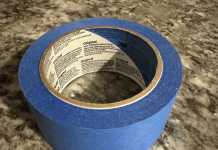Lately, I’ve struggled with productivity. It started during the quarantine, but now that we can, cautiously, resume some of our past lives – and my kids are back in school – I still feel disconnected and off schedule most days. Things are slipping my mind, projects are piling up, and my creative brain is struggling.
Not expressing myself creatively is an issue. First, I’m a writer. It’s literally what I do for a living. So not writing = not doing my job. Second, it’s my emotional outlet. It’s how I process. So not doing anything creative = sad me, which negatively feeds into everything else.
Now, the prospect of sitting in front of my computer for hours working on my latest novel, even though I’m excited about it and want to move forward, is becoming more and more difficult. I’m easily distracted, out of focus, and overwhelmed. Frequently there are a list of things I “should” be doing, but every task feels too big and like it will take too long. So I avoid it, which creates a cycle of stress-guilt-avoidance that leaves me stuck in the middle.
Enter sprints.
I knew I had to get back to writing for my mental health and my pocketbook. When a fellow author friend recommended Chris Fox’s book 5,000 Words Per Hour, everything changed.
Twenty Minutes of Focus
The concept, though basic, is pretty genius. Take a few minutes to prepare for whatever you are about to do. Give yourself time to finish that last social media scroll, focus on what you are about to tackle (in this case, write a chapter or scene), then disconnect and set a timer for a designated time. There can be zero distractions. You cannot stop when that errant thought enters your brain. You cannot, in the case of writing, fix typos or look something up.
I was skeptical, but intrigued. So, I tried it. After one week, my daily output quadrupled. I wrote an entire book during phase one using sprints. That’s a not-so-humble brag. I was proud and excited at the prospects.
Taking It Further
I began to wonder if this concept, that worked so well for writing, might have an impact in other areas of my life. What if I cleaned one room for twenty minutes a few times a week? Decluttered a surface? Cleaned out my inbox?
The results were always the same: all the huge, overwhelming tasks that previously felt too daunting to start were casually being chipped away in tiny increments. As I built stamina, my sprints lasted longer, and I became more productive overall.
I’m a self-help book junkie, and I remember reading mini habits and loving the concept of setting tiny goals then exceeding them. That idea, combined with productivity sprints, gave me back control.
Where to Sprint
So, if you are one of those people who does laundry every day, never has a disorganized cabinet, and has a fool-proof system in place for life, then this may not be for you. But if everything is coming at you lately, here is a list of areas you can test out productivity sprints, to see if they make a difference.
Remember, start small (I actually started with 10 minutes in some areas and moved up to 30 minutes when writing), do all of your prep work before (including going to the bathroom and getting a drink), put your phone on airplane mode (seriously, do it), and set your timer.
Workout Sprints
Take a walk, cycle through a workout routine, or stretch. Use your first sprint to come up with a routine that’s 10-15 minutes. Little things are better than nothing!
Declutter Sprints
Focus on one cabinet, drawer or surface and start by removing one item at a time and find a home for it – even if that home is the trash. I know the experts recommend emptying everything first, but nobody has time for that! When it’s more manageable, you can do that. For now, take baby steps.
E-mail Sprints
Click through your emails one-by-one and unsubscribe from any recurring e-mails you never read. Add the ones you can’t wait to read (like New Orleans Mom) to a VIP list so you can get to them more quickly in the future. Then delete or file the rest. Clear your inbox!
Vegetable Sprints
Take out that cucumber or pepper, before it goes bad in the crisper, and take the time to wash and chop it. You don’t have to do a week’s worth of food prep that takes hours all in one day. Use a sprint to create some “on the go” healthy snack and food options.
Laundry Sprints
Fold that pile you just took out of the dryer. Organize that drawer that’s stuffed full. I like to use this one to go through my kids’ clothes and pull out the things they no longer wear or that don’t fit.
‘One Day’ Items
You know that list of ‘someday I will get to it’ items you keep in your head or on your phone? Some of them are getting bigger, or take too long. So click through them and find ways to chip away at each task. Can you organize your music collection for twenty minutes? What if you just cleaned one shelf or went through one box of old photos?
Home Maintenance
When the weather is nice, set a timer and hop outside to pull weeds, organize your outdoor storage, or plant a few flowers. Again – don’t choose a project that takes all day. But if you can find part of that project to get done, then the rest becomes something you are more likely to schedule in.
Baby Steps
There are a million applications here, so find the one that works for you and try it. Start with a small time period and a manageable task and give it a whirl! It will feel strange at first, and you will pause a lot when you begin, but over time I believe you can create a manageable, working solution to bigger problems. Or tackle that huge goal you’ve always wanted to achieve.
Good luck!
















